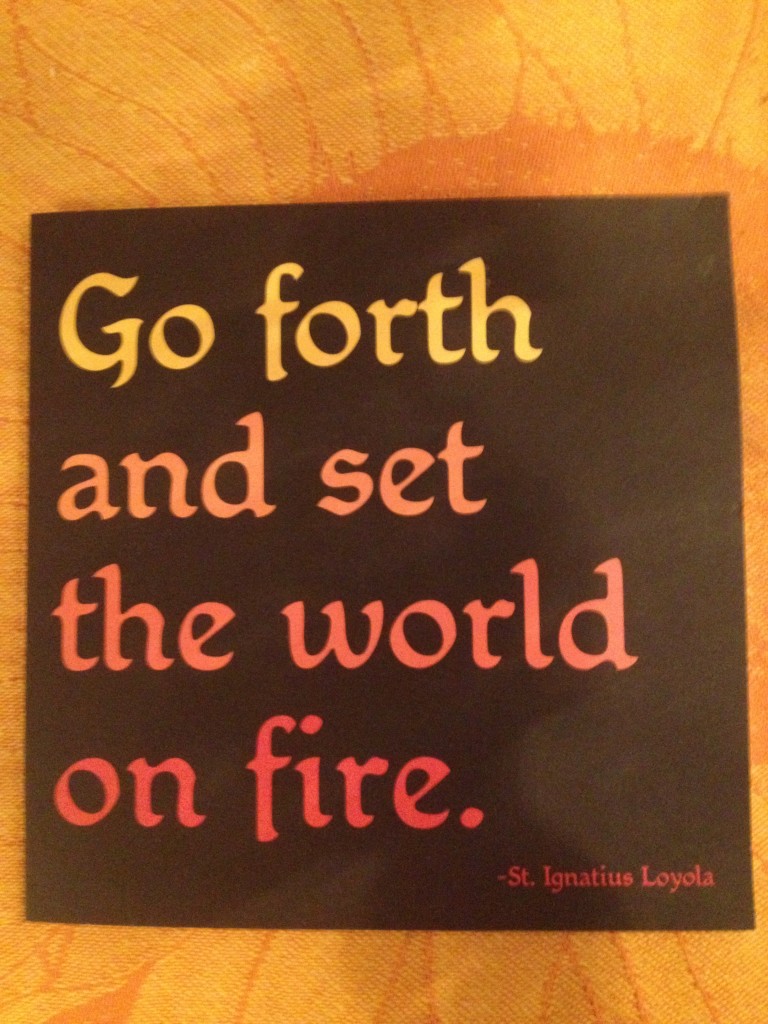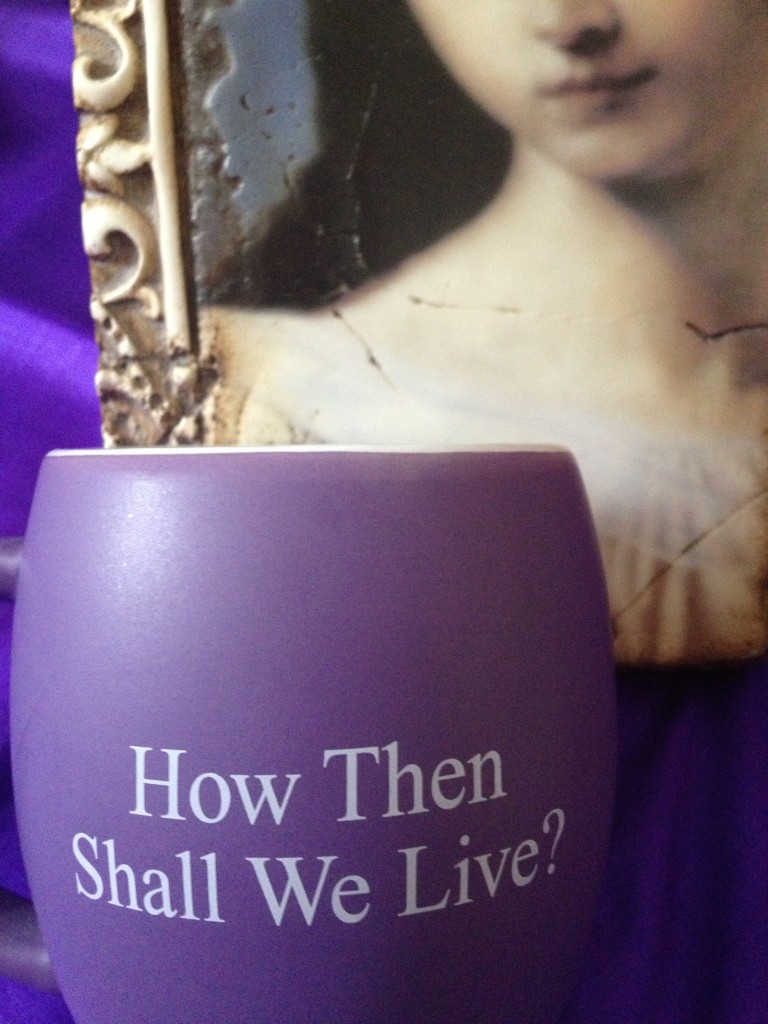Posed to me nearly eight years ago as a freshman at the College of the Holy Cross – a Jesuit liberal arts school in Worcester, MA – this question has left an indelible mark, frequently echoing in my mind when undergoing times of trial and tribulation.
As the signature mantra of the “First Year Program” (an optional program for freshman that has since evolved into “Montserrat” – an intensive, yearlong seminar for all first-year students), it came to encompass what I found to be the trademark of a “Holy Cross education”: a steadfast dedication not only to the academic and intellectual development of students, but to the personal and spiritual formation of one’s self.
The question naturally resurfaced, then, after reading a recent alumni newsletter, announcing the creation of a “Contemplative Center” in West Boylston, MA, located near Holy Cross’ campus.
“In today’s rapid-response world, where technological change is constant, and the values we consider timeless can be routinely questioned, the mission of Holy Cross has never been more important,” said Rev. Philip L. Boroughs, S.J., President of the college, in a statement. “We are dedicated to educating the whole person: mind, body, and spirit,” he added.
Designed to enhance the college’s esteemed retreat programs and preserve the beauty of a 52-acre site, the “Thomas P. Joyce Contemplative Center” (named after a member of the Holy Cross board of trustees who became the father of six Holy Cross graduates) is scheduled to open in the fall 2016 academic year.
Following my instinctual reaction of wishing this existed during my time there, I was again reminded of the importance of reflection and the role it plays in helping us step outside of what can become a very insular world – especially when you are a full-fledged adult living and working in the “real world.”
How easy it is to get caught up in the humdrum of daily existence, feverishly working, achieving and striving for more in a blind pursuit of happiness, with little time left to reflect on life, who we are, where we’re going and who we aspire to be.
“For it is not knowing much, but realizing and relishing things interiorly, that contents and satisfies the soul,” wrote St. Ignatius of Loyola (1491-1556), who founded the Society of Jesus (Jesuits) in 1541 and whose spiritual teachings Holy Cross espouses.
Creating opportunities to “realize and relish things interiorly”, to reflect and take a deeper look within, is certainly one of Holy Cross’ greatest strengths – and the thing I miss most about life on “The Hill.”
Both inside and outside the classroom, college leaders – from the president to professors, directors to priests – challenged us to ponder comprehensive, philosophical questions and tackle rigorous projects and assignments that necessitated a deep intellectual dive into unfamiliar territory.
Or, as Holy Cross might say, they required “magis” – a Latin term for “more” used to encapsulate the Jesuit principle of digging deeper or striving for greater things (it is also a motto that Holy Cross students become familiar with shortly after freshman move-in day each year). “It’s not about more busyness or more stuff. It’s about living with more passion, pursuing excellence, and allowing ourselves to be uncomfortable in order to be stretched”, the college says.
 In such an environment, it was hard not to be in a continual state of reflection and engage in the variety of contemplative activities that Holy Cross offers. In fact, it was a 5-day silent retreat (an adapted version of St. Ignatius’ “Spiritual Exercises”) at the tail end of my last semester that would come to be my most cherished memory at Holy Cross, providing clarity, strength and encouragement that I have often called upon to this very day.
In such an environment, it was hard not to be in a continual state of reflection and engage in the variety of contemplative activities that Holy Cross offers. In fact, it was a 5-day silent retreat (an adapted version of St. Ignatius’ “Spiritual Exercises”) at the tail end of my last semester that would come to be my most cherished memory at Holy Cross, providing clarity, strength and encouragement that I have often called upon to this very day.
That Holy Cross is creating a “Contemplative Center” should be welcome news for current Crusaders and those to come (I only hope that they will offer an “alumni retreat” there one day). After all, Fr. Boroughs is right: in today’s technologically advanced world where putting down your phone for more than five minutes at a time has become a rather difficult task, any mission to advance and encourage reflection, exploration and contemplation is well lauded.
And so, as St. Ignatius of Loyola once said, “Go forth and set the world on fire,” always remembering to strive for “magis.” But throughout the journey, I might add, ponder this:
How Then Shall We Live?
Please note: ATG will be exploring St. Ignatius’ teachings and “Spiritual Exercises” in greater depth in future posts.

I would like a contemplative corner in my house please….